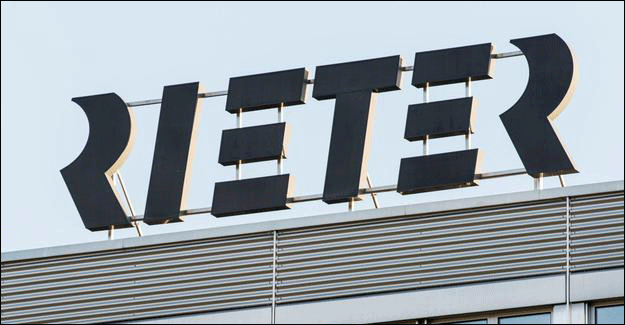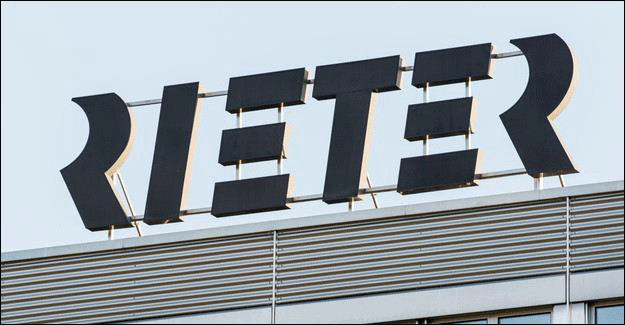
Rieter Order Intake In H1 2017 Increases By 26 Per Cent As Compared To H2 2016
Due to increasing demand since March 2017, Rieter posted an order intake of Swiss Franc (CHF) 495.2 million in the first half of 2017. This was 3% below the previous year’s level (first half year 2016: CHF 510.7 million) and with an increase of 26% was well above the second half of 2016 (CHF 394.5 million).
At CHF 415.2 million, sales were 5% down on the previous year (first half year 2016: CHF 436.9 million). On these sales, Rieter generated an EBITDA of CHF 34.8 million (first half year 2016: CHF 34.4 million) and an EBITDA margin of 8.4% (first half year 2016: 7.9%).
The order backlog rose to around CHF 545 million (December 31, 2016: around CHF 440 million). It already extends into 2018.
In the period under review, Rieter achieved the most significant sales in Asian countries (not including China, India and Turkey) with a total of CHF 111.2 million. The decline in sales compared to the previous year was mainly due to reduced shipments to Bangladesh and Vietnam. The order intake recorded in the period showed a positive development. It was significantly above the accomplished sales and benefited from the dynamism of the Central Asian countries.
In China, sales declined by 20% compared to the first half of 2016, to CHF 83.8 million, with one third of sales generated in Xinjiang province. Order intake was slightly below sales. In the second quarter of 2017, Rieter recorded increasing demand for the model R 36 of the semi-automatic rotor spinning machine, which was introduced in 2016.
In India, at CHF 94.7 million, sales exceeded the previous year’s level by 16%. This is mainly due to the delivery of compact spinning machines K 42 and EliTe compact spinning systems, which were ordered in the second half of 2016. While the first months were characterised by restraint due to the “demonetarisation” at the end of 2016, demand in the second half of the semester was increasingly robust.
In Turkey, with sales of CHF 49.1 million, Rieter generated growth of 55% compared to the previous year, which was attributable to the delivery of orders from the previous year’s period. The hesitant recovery in the last two months of the reporting period meant that order intake was below the level of sales.
In terms of sales and order intake, the North and South America and Africa regions were characterised by large individual orders in the machinery business.
The Machines & Systems Business Group benefited from growing demand since March 2017. At CHF 325.2 million, order intake was down 5% on the previous year (first half year 2016: CHF 343.4 million). Here, Machines & Systems succeeded in largely compensating for the low level of order intake from Turkey by fulfilling projects from other regions, in particular thanks to orders for the ring spinning machine G 32. In addition, the first orders were booked for the further developed air-jet spinning machine J 26.
In the first half of 2017, Machines & Systems achieved sales of CHF 255.1 million, thereby roughly matching the level of the previous year (first half year 2016: CHF 256.9 million). As a result of the cost reduction measures implemented in Winterthur (Switzerland), Machines & Systems significantly improved the loss on the EBIT level, from CHF –12.1 million (first half year 2016) to CHF –3.8 million in the first half of 2017.
The order intake of the After Sales Business Group showed positive growth. Thus, order intake increased by 9% to CHF 77.7 million (first half year 2016: CHF 71.2 million). Sales were stable at CHF 70.1 million (first half year 2016: CHF 70.7 million). Continued investments in the expansion of the business meant that, at CHF 12.8 million, the business group’s EBIT in the first half of 2017 fell slightly below the previous year’s level (first half year 2016: CHF 13.2 million).
The Components Business Group also benefited from growing demand since March 2017. At CHF 92.3 million, order intake was below the first half of 2016 (CHF 96.1 million), but significantly higher than the second half of 2016 (CHF 82.3 million). The lower order intake in the second half of 2016 led to a corresponding decline in sales in the first half of 2017, to CHF 90.0 million, compared to an extraordinarily strong comparison period (first half year 2016: CHF 109.3 million). Product mix and the resulting lower utilisation of individual plants led to an EBIT decline to CHF 12.6 million in the first half year (first half year 2016: CHF 18.4 million).
As of June 30, 2017, the Rieter Group had 5 232 employees (June 30, 2016: 5 067 employees). This figure includes the newly added employees of SSM Textile Machinery. In addition, as of June 30, 2017, Rieter had 652 temporary employees (June 30, 2016: 574 temporary employees).
Operating result and net profit
Rieter’s first half year in 2017 was characterised by improved profitability in the Machines & Systems Business Group, a stable result for After Sales and a weaker result in Components. EBIT reached CHF 16.0 million, which compared to the previous year corresponds to a slightly higher margin of around 3.9% of sales (first half year 2016: CHF 15.7 million and 3.6%, respectively). In the first six months of 2017, Rieter achieved a net profit of CHF 10.9 million, thereby reaching the previous year’s level (first half year 2016: CHF 11.0 million).
Acquisition of SSM Textile Machinery
On June 30, 2017, Rieter acquired the SSM Textile Machinery Division (SSM) from Schweiter Technologies AG in Horgen, Switzerland. SSM is the world’s leading supplier of precision winding machines in the fields of dyeing, weaving and sewing thread preparation and enjoys success in individual segments of filament yarn production. The business has been attached to Rieter’s Components Business Group as an independent unit.
The purchase price for SSM of CHF 124.2 million consists of an enterprise value of CHF 100.2 million and cash and cash equivalents of CHF 24.0 million and was financed from existing funds. The transaction costs of CHF 1.9 million related directly to the acquisition, of which CHF 1.3 million was incurred in the first half of 2017 and CHF 0.6 million in the 2016 financial year, were recorded in the income statement.
Free cash flow and balance sheet
The Group reported a free cash flow of CHF –125.6 million (first half year 2016: CHF 4.5 million) during the reporting period. This development is mainly due to the cash outflow of CHF 100.2 million for the acquisition of SSM Textile Machinery and a temporary increase in net working capital. After payment of a dividend of CHF 22.6 million (CHF 5.00 per share) out of legal capital reserve in April 2017, as at June 30, 2017, cash and cash equivalents, marketable securities and time deposits amounted to CHF 207.5 million and net liquidity to CHF 101.3 million.
Rieter had an equity ratio of 43.8% on the balance sheet date (June 30, 2016: 43.8%). In the first half of 2017, Rieter again focused on innovations, after sales excellence and increasing profitability.
Innovations:Rieter is specifically focused on the development of new products and services. The single-head draw frame generation RSB-D 50, which was successfully introduced in 2016, registered strong demand in the second quarter of 2017. In the first half of 2017, the Group invested a total of CHF 22.8 million in research and development. This corresponds to 5.5% of sales.
After Sales Excellence:The After Sales Business Group aims to increase sales to CHF 166 million by 2018, representing growth of 30% compared to 2014. In the period under review, Rieter continued to work on this target as planned. Thus, spare parts logistics were contracted out to a service provider within the framework of a European solution, which will allow Rieter to achieve a significant reduction in delivery times. At the same time, Rieter opened a service branch in Kahramanmara?, to support its customers in the south east of Turkey with an even faster and better service. The order intake of CHF 77.7 million in the first half of 2017 underlines the growth ambitions.
Increasing Profitability:As announced on February 1, 2017, Rieter plans to relocate production from the Ingolstadt site in Germany to the Ústí site in the Czech Republic. Rieter is currently negotiating with the employees’ representatives.
Outlook
In the first half year, demand for components, spare parts and services was stable and order intake for new machines increased.
Despite the still low visibility, Rieter assumes that demand will develop at the level of the first half year in the coming months. The acquisition of SSM Textile Machinery will make a positive contribution to sales and EBITDA in the second half of 2017.
Overall in 2017, Rieter expects slightly higher sales than in the previous year and an EBIT slightly below the previous year (before restructuring costs), due to the product and country mix.
At the appropriate time, Rieter will provide information on the restructuring costs associated with the reorganisation concept for the Ingolstadt site in Germany, which was announced on February 1, 2017.

Textile Excellence
If you wish to Subscribe to Textile Excellence Print Edition, kindly fill in the below form and we shall get back to you with details.












